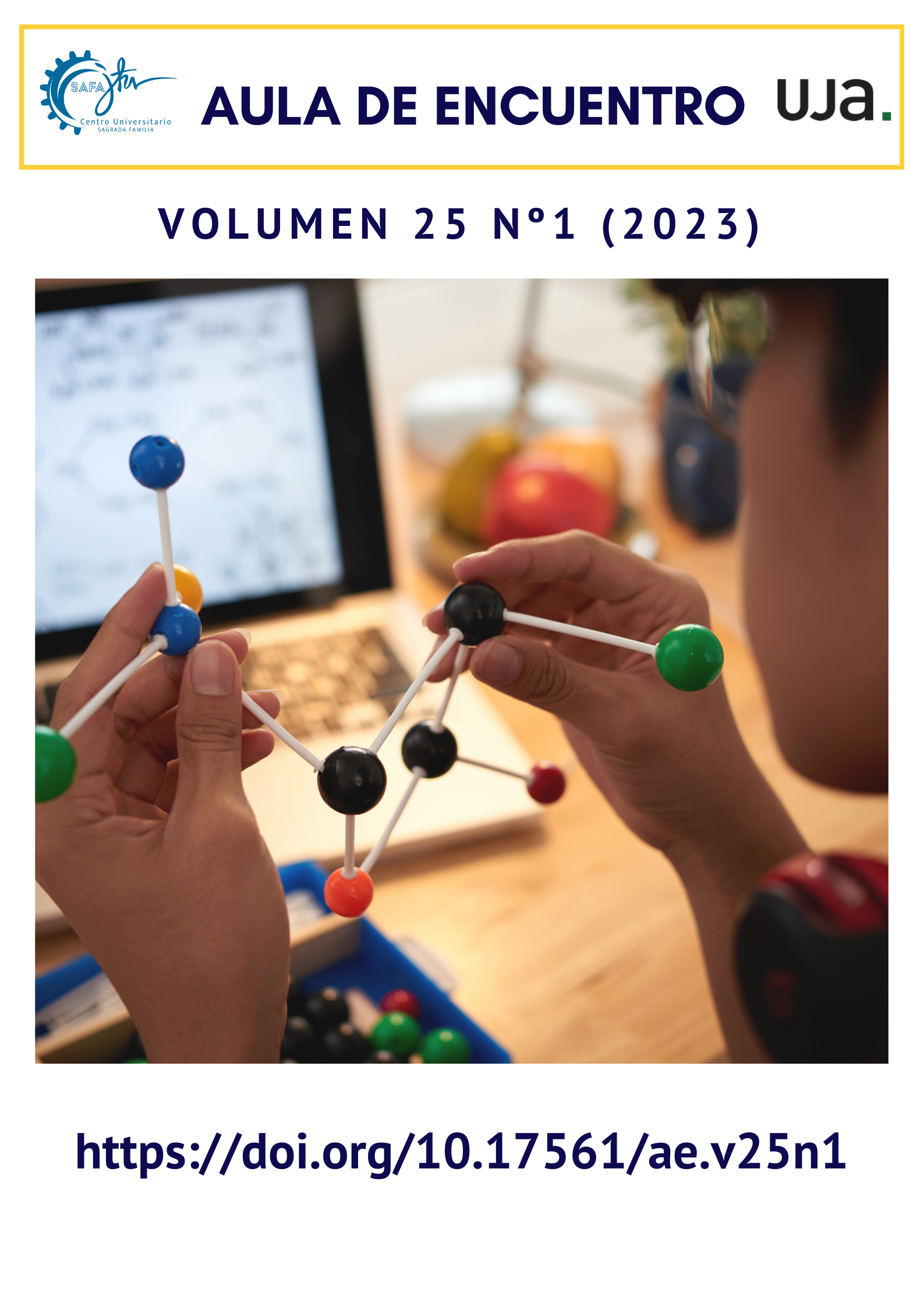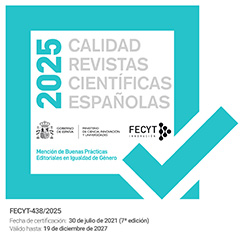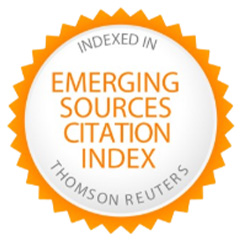Gamificando Harry Potter: Análisis de un estudio de caso en Educación primaria
DOI :
https://doi.org/10.17561/ae.v25n1.7704Mots-clés :
Gamificación, cualitativo, metodologías activas, aprendizaje, escuelaRésumé
El objetivo de este trabajo ha sido analizar la percepción del alumnado, familias y profesorado sobre un proyecto de gamificación de Harry Potter en alumnado de Educación Primaria. En el estudio participaron un total de 19 niños y niñas de 3º curso de Educación Primaria de un centro educativo del norte de España, las familias del alumnado, la maestra de Pedagogía Terapéutica y el profesor-investigador. Se emplearon distintos instrumentos para la recogida de datos: diario del profesor-investigador, preguntas abiertas al alumnado, familias y observadora externa y finalmente, dibujos. El análisis de los datos produjo un total de tres categorías: diversión, cooperación y aprendizaje. Los resultados reflejaron un importante incremento de la diversión, mejora del aprendizaje cooperativo y un incremento de los aprendizajes académicos gracias al enfoque pedagógico gamificado. En conclusión, el enfoque gamificado ayuda a contribuir de manera importante variables de gran calado educativo.
Téléchargements
Références
Denzin, N. K., y Lincoln, Y. S. (1994). Handbook of qualitative research. Sage. https://doi.org/10.4135/9781848607927
Deterding, S., Sicart, M., Nacke, L., O'Hara, K., y Dixon, D. (2011). Gamification: using game-design elements in non-gaming contexts. In Proceedings of the 2011 Annual Conference on Human Factors in Computing Systems. https://dx.doi.org/10.1145/1979742.1979575.
Dichev, C., y Dicheva, D. (2017). Gamifying education: what is known, what is believed and what remains uncertain: a critical review. International Journal of Educational Technology in Higher Education, 14(9), 1–36. DOI 10.1186/s41239-017-0042-5
Dindar. M., Ren, L., y Järvenoja, H. (2020). An experimental study on the effects of gamified cooperation and competition on English vocabulary learning. British Journal of Educational Technology, 52(1), 142–159. https://doi.org/10.1111/bjet.12977
Fernández-Río, J. (2019) (coord.). Gamificando la Educación Física. De la teoría a la práctica en Educación Primaria y Secundaria. Universidad de Oviedo.
Fernández-Río, J., De las Heras, E., González, T., Trillo, V., y Palomares, K. (2020). Gamification and physical education. Viability and preliminary views from students and teachers. Physical Education and Sport Pedagogy, 25(5), 509–524, DOI: 10.1080/17408989.2020.1743253
Figueroa, F., (2015). Using gamification to enhance second language learning. Digital Education Review, 27, 32–54.
Flores-Aguilar, G. (2019). ¿Jugamos al Súper Mario Bros? Descripción de una experiencia gamificada en la formación del profesorado de Educación Física. Retos, 36, 529–534.
Flores-Aguilar, G., Fernández-Río, J., y Prat-Grau, M. (2021). Gamificando la didáctica de la Educación Física. Visión del alumnado universitario. Revista Internacional de Medicina y Ciencias de la Actividad Física y el Deporte, 21(84), 515–533.
Forés, A., Sánchez, J., y Sancho, J. M. (2014). Salir de la zona de confort. Dilemas y desafíos en el EES. Tendencias pedagógicas, 23, 205–214.
Gaspar Huamaní, E. (2021). La gamificación como estrategia de motivación y dinamizadora de las clases en el nivel superior. Educación, 27(1), 33–40. https://doi.org/10.33539/educacion.2021.v27n1.2361
Herranz, H., y Herranz, E. (2013). Gamificación: un agente de cambio. Techfest.
Kapp, K. M. (2012). The Gamification of learning and Instruction. John Wiley.
León, O., Martínez-Muñoz, L. F., y Santos-Pastor, M. L. (2019). Gamificación en educación física: un análisis sistemático de fuentes documentales. Revista Iberoamericana de Ciencias de la Actividad Física y del Deporte, 8(1), 110–124.
Libarkin, J. C., y Kurdziel, J. P. (2002). Research methodologies in science education: the qualitative-quantitative debate. Journal of Geoscience Education, 50(1), 78–86. https://doi.org/10.1080/10899995.2002.12028053
Meroño, L., Calderón, A., Arias-Estero, J. L., y Méndez-Jiménez, A. (2018). Percepción del alumnado y profesorado de Educación Primaria sobre el aprendizaje de los estudiantes basado en competencias. Cultura y Educación, 30(1), 18–37.
Monguillot, M., González, C., Zurita, C., Almirall, L. y Guitert, M. (2015). Play the Game: gamificación y hábitos saludables en educación física. Apunts. Educación Física y Deportes, 119, 71-79. https://dx.doi.org/10.5672/apunts.2014-0983.es.(2015/1).119.04
Moreno, E., Perales, R., e Hidalgo, J. (2019). Estudio cualitativo sobre el uso de la gamificación en Educación Superior para promover la motivación en el alumnado. Aula de Encuentro, 21(2), 5–26. https://doi.org/10.17561/ae.v21.n2.1
Navarro-Mateos, C., Pérez, I., y Femia, P. (2021). La gamificación en el ámbito educativo español: revisión sistemática. Retos, 42, 507–516.
Palomino, P. T., Toda, A. M., Oliveira, W., Cristea, A. I., y Isotani, S. (2019). Narrative for gamification in education: why should you care? In International Conference of Advanced Learning Technologies (ICALT) (vol. 2161, p. 97–99). IEE.
Pegalejar, M. (2021). Implicaciones de la gamificación en Educación Superior: una revisión sistemática sobre la percepción del estudiante. Revista de Investigación Educativa, 39(1), 169–188.
Quintanal, F. (2016). Gamificación y la física-química de secundaria. Education in the Knowledge Society, 17(3), 13–28. https://doi.org/10.14201/eks20161731328
Rezaee, R. and Pabarja, E. y Mosalanejad, L. (2019) Students' Academic Quality of Life and Learning Motivation in Iran Medical University - pilot from south Iran. Pakistan Journal of Medical & Health Sciences, 13(2), 570–576.
Roa González, J., Sánchez Sánchez, A. y Sánchez Sánchez, N. (2021). Evaluación de implantación de la Gamificación como metodología activa en la Educación Secundaria española. REIDOCREA, 10(12), 1–9
Severín, E. (2017). Un nuevo paradigma educativo. Educación y ciudad, 32, 75–82.
Teixes, F. (2014). Gamificación: fundamentos y aplicaciones. UOC.
Villarroel, R., Santa María, H., Quispe, V., y Ventosilla, D. (2021). La gamificación como respuesta desafiante para motivar las clases en educación secundaria en el contexto de COVID-19. Revista Innova Educación, 3(1), 6–19. https://doi.org/10.35622/j.rie.2021.01.00
Werbach, K., y Hunter, D. (2012). For the win: how game thinking can revolutionize your business. Wharton Digital Press.
Zepeda-Hernández, S., Abascal-Mena, R., y López-Ornelas, E. (2016). Análisis cualitativo de experiencias y emociones de los alumnos en el aula. RaXimhai, 12(6), 347–358.
Téléchargements
Publié
Numéro
Rubrique
Licence
© José Ignacio Menéndez Santurio 2023

Cette œuvre est sous licence Creative Commons Attribution 4.0 International.
Los autores que publican en esta revista están de acuerdo con los siguientes términos:
- Los autores conservan los derechos de autor y garantizan a la revista el derecho de ser la primera publicación del trabajo al igual que licenciado bajo una Creative Commons Attribution License que permite a otros compartir el trabajo con un reconocimiento de la autoría del trabajo y la publicación inicial en esta revista.
- Los autores pueden establecer por separado acuerdos adicionales para la distribución no exclusiva de la versión de la obra publicada en la revista (por ejemplo, situarlo en un repositorio institucional o publicarlo en un libro), con un reconocimiento de su publicación inicial en esta revista.
- Se permite y se anima a los autores a difundir sus trabajos electrónicamente (por ejemplo, en repositorios institucionales o en su propio sitio web) antes y durante el proceso de envío, ya que puede dar lugar a intercambios productivos, así como a una citación más temprana y mayor de los trabajos publicados (Véase The Effect of Open Access) (en inglés).
![]()
Este obra está bajo una licencia de Creative Commons Reconocimiento 4.0 Internacional.















